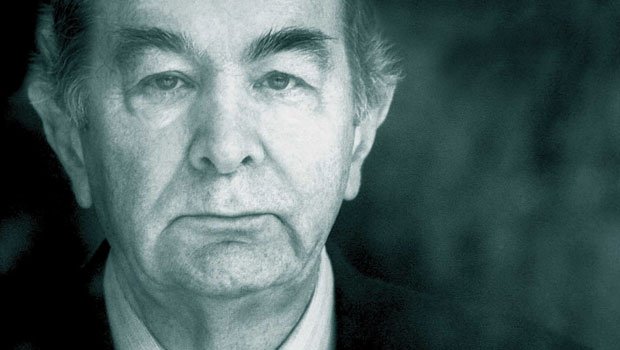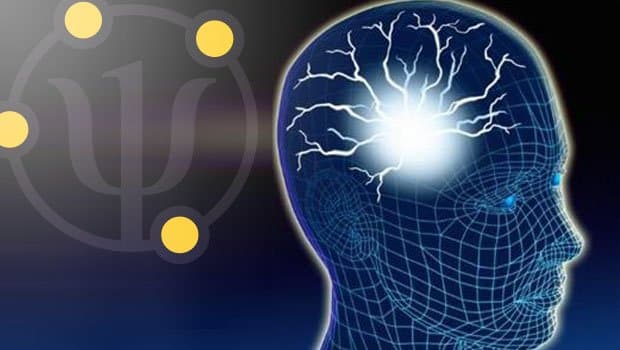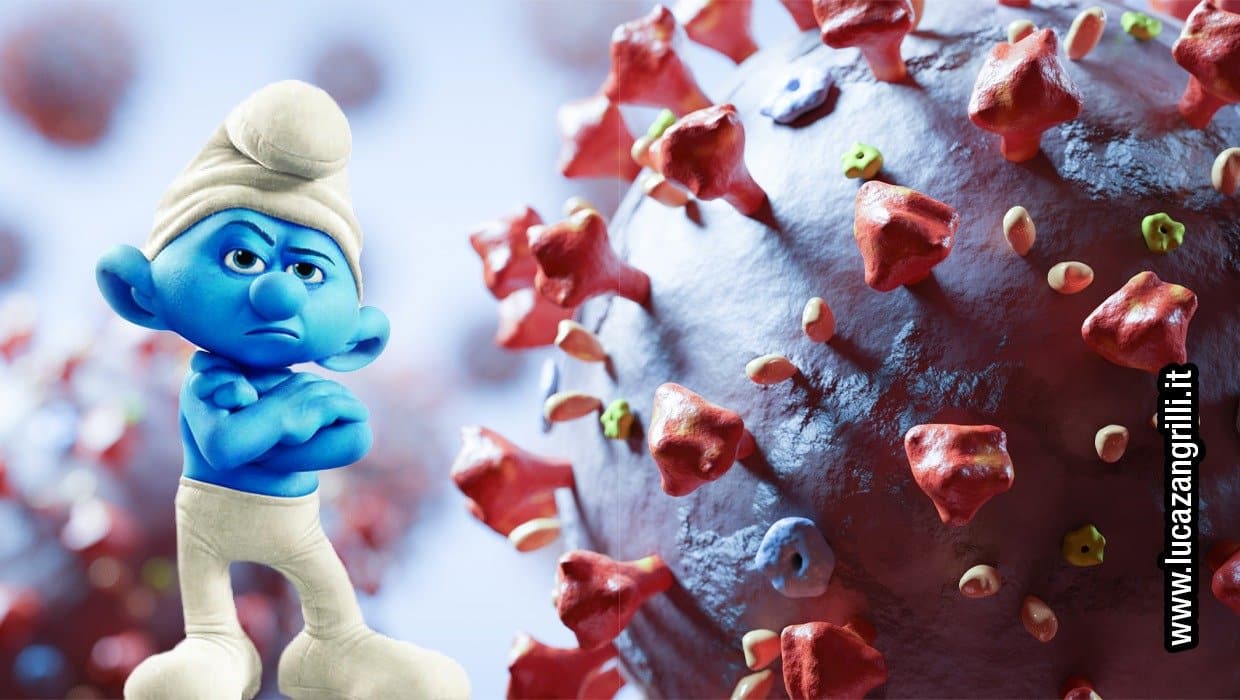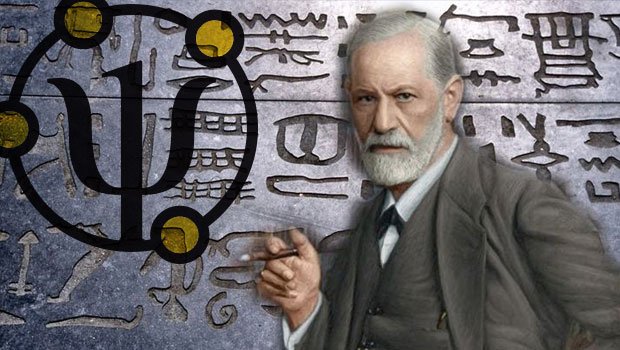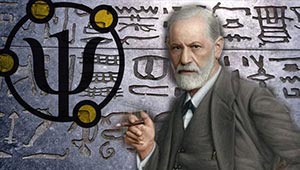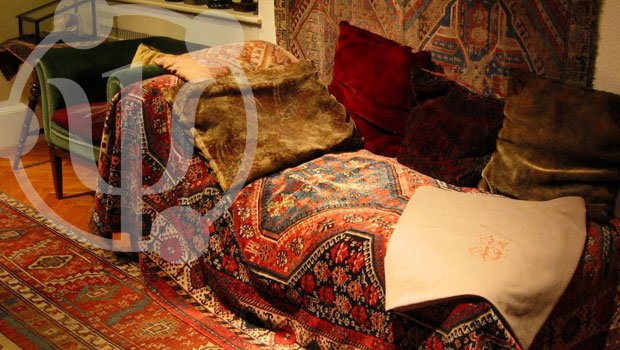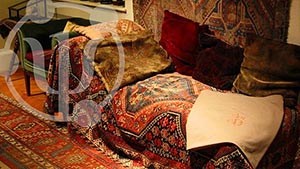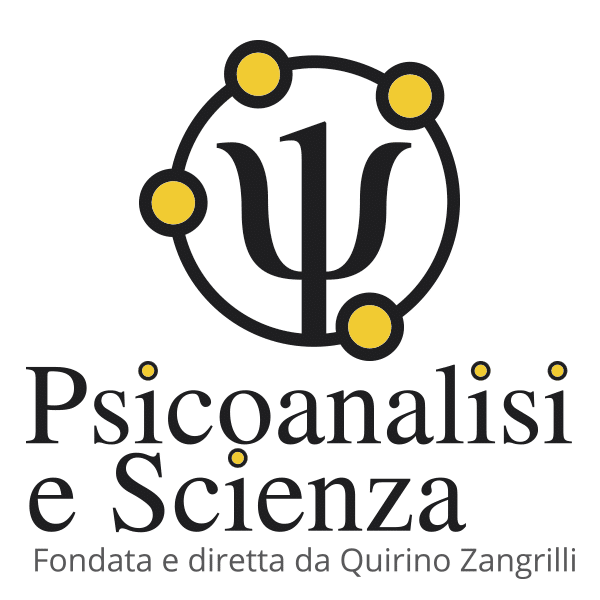Who works in psychoanalysis, cannot certainly ignore who was Marie Bonaparte, if only for the fundamental role that she had for the rescue of Sigmund Freud from the Nazi persecution and for his move first to Paris and then to London, where unfortunately the master died on the 23rd of September 1939.
In this brief article, which is also a modest homage to her genius, I will not occupy myself of her important scientific works, and of her career of a famous psychoanalyst, but rather on a small part of the first volume of the Five Copy Books, which she wrote and began from the 23rd November 1889 when she was seven and a half years old until the 24th of May 1892 when she was ten.
Just like all geniuses Marie was precocious, I think in everything, and had a great capacity of a mentalised sublimation. For example, at the age of seven years she had the ability to invent stories, novels, poetry, and to write in English and French.
The first little poem of the copy-book is of the 23rd November 1889 and is entitled “Mr Pratt and his sly cat”. On the same day she translated into French “Mr. Pratt et son chat rusé” 1
Infantile amnesia had cancelled the memory of these copy-books and this she found only after the death of her father on the 14th of April 1924.2
At the first reading after this discovery, even though recognising that they had been written by her, she was unable to enter into an affective contact with them. She had completely forgotten, but the other copy-books conserved by her Father, containing the “Souvenirs” of her infant life, were remembered and recognised perfectly.
“The enigma of this phenomenon is in the contents of the copy-books,these are taken from the course of imaginary, absurd, and in some ways grotesque, it irritated me”, wrote the Princess,3 “ The fact is at my fathers bedside, during his long and cruel illness from which he eventually died, I read “The introduction of Psychoanalysis” of Sigmund Freud, the enigma of these copy-books was one of the factors, added to others, that guided me after my fathers death, to ask Freud for a psychoanalysis”.
It began like this the analytical undertaking of the great Napoleon’s little niece,who became the lady who contributed so much to the psychoanalytical movement in France and the world. We cannot forget that we owe to her that immense mine of study: the Letters of Freud to Fliess. It was she that bought them for £100 sterling (at that time) from a Berlin antiquary, on the flee to Paris, they had been sold by Fliess’s widow in 1928; and it was she who resisted Freud’s pressure to destroy them, and it was her again that saved them during the second world war and to permit us to be able to accede to a document from which it is possible to study psychoanalysis while it forms.
In order to continue and develop this argument that I intend to present to the readers, I must still introduce some biographic data. As I wrote in the second article, Marie Bonaparte was the daughter of Prince Roland Bonaparte and the heiress Marie-Felix Blanc. Born on the 2nd of July 1882. The birth was very difficult, forceps had to be used and the little one remained close to death for a long time and three quarters of an hour of artificial respiration was necessary. Marie’s twenty-two year old mother was probably tuberculous,and on the first day that she was able to leave her bed – the 1st of August, she suddenly died on that evening from and embolism.
Little Marie was already in trust and care to the prosperous bosom of a country woman from the region of Niève, who breast -fed her for over a year. Rose Poulet (said Nounou) such was her name,remained in this home until Marie was three years old and then she was sent away for impertinence towards her paternal grandmother Justine-Eleonor Ruffin, daughter of a Paris plumber.
The Bonaparte family moved from St.Cloud to Paris in 1885 and they settled at 22,Cours de la Reine. Nounou was substituted by a “charming and sweet Belgian girl, Lucie”.
Lucie, who was married, was sent away a couple of years later for frivolous behaviour with a certain Mr.Pascal ( a very important figure of reference in the psychosexual development of Marie):” le piquer corse de mon père”.4
Pascal was Marie’s illegitimate uncle, it was sustained by a family whisper,and known that he was the son of the Princess’s grandfather and a Corsican country peasant. in fact he was brought up in the house of Pierre Bonaparte, and with the help from his wife Marie -Justine, he received a good education. Together with the Bonaparte family Pascal moved to France.
He then entered into the stables under the orders of Napoleon III, and in a moment of family misfortune he supported them with his savings.
When Roland married the rich heiress and re-established the wealth of the family name, he was taken into his service as Equerry. Pascal was Roland’s older brother, also if he was at his service, he had free access to the house and being a handsome man was courted by ladies, maids and wet-nurses. He was a serious man and aware of his position, yet he did not renounce to his feminine pleasures, especially with Marie’s pleasant nurses. He was one of the oedipic references of the child who was precociously predisposed to sex,and noted in the preconscious his amorous behaviour and that of the nurses.
These amorous behaviours were one of the principal themes of her analysis which began in 1925. “And so for many months in the year and for many years I went to Vienna.5 It was after three weeks of analysis that the principal theme that formed the foundation of these copy-books, was discovered by Freud. Not from the test of the copy books not yet read,6 but from a dream. At the beginning, from this discovery there was a great resistance, and in the successive nights, my dreams all tended to represent Freud as a systematic spirit and without criticism who tried to impose on everybody, indifferently, the same stereotype “cliches” .But, soon I had to surrender myself to the evidence, all of my unconscious memories converged into the same sense.(op.cit.pag.3).
Marie Bonaparte; was never able to bring back to her conscious the memory of the primal scene reconstructed by Freud, but being that for eighty one of the protagonists of her infantile “epopee” still existed, precisely Pascal, she decided to make a research to know exactly what happened. A difficult research , but as we will see a rich one.
The cue came from one of her old fairy tales entitled “ The mouth pencil”, she said when Freud read her diary he commented “ this mouth pencil seems suspicious.When you were small you must have seen a fellatio”.
Nevertheless, writes Bonaparte, Freud discovered in these copy-books the latent contents before having read them, taken from a dream three or four weeks after having begun the analysis.
“It was a dream of intense colour that I had made, in which, on the edge of the grassy slopes of the Bois de Boulogne lake, from a low bed, I observed a couple I knew, laying down on a double bed for adults”.
As it often happened in those times , from an immediate interpretation, Freud treated it as a memory and said “ in her infancy she must have seen a scene of sexual intercourse.But not only heard, as so happens to many children, but actually seen and in full light. Marie, who had just begun her analysis, was stupefied, she rebelled, and did not believe it saying I had no mother. Freud objected that nevertheless she had had a nurse. This evidence made her recall the tittle tattle that Lucy had told her in respect of the dismissal of her first nurse and that “she did it “ with Pascal, and so she began to take seriously the argument and undertake a parallel research both analysing the contents of the diary and deciding to interview the people that were still alive, of her infancy, above all Pascal.
The interview with Pascal, after hearing his strong oppositions who as a typical gentleman had no desire to reveal his ancillary adventures, gave the fundamental information for the experimental ascertainment of Freud’s reconstructions and interpretations. Besides this, matters of maximum importance both for the psychoanalytical study and that of infantile psychology, provide the clearest example of how the removed or at least the forgotten, both are subsequently recuperable if you are able to discover the interpretive code.
In order to continue our work I think it is necessary to return once again to Marie’s words regarding the first recollection of her infancy conserved in her memory “ I am sitting low down on a small chair or box in Cours la Reine, in my nurses room. She is standing in front of the mirror above the fireplace in which a fire is blazing; I look at her attentively, . she is putting ointment onto the waves of her black hair. The ointment is in a small white jar that is on top of the fireplace: it is black, I find this disgusting. My nurse has a long face, yellowish and she looks like a horse”.
This screen memory (referring to Marie Bonaparte) second to Freud confirms the assertion of Lucy in respect to the amorous event of her nurse. For Freud this man was certainly one who had to do with horses, and he explained basing the fact on the long horse-face that Marie attributed to her nurse ( the yellowish colour says Freud is the reflex of the horse’s yellow teeth). “ Now this horsy-face” refers Marie, “ had nothing to do with the real face of Lucy which was rather round as verified in a photo: from here the confirmation was taken that the horsy-face expressed further memories.
In the following pages Bonaparte employs herself in a symbolic interpretation of this memory,that preludes the interpretation of the story regarding the mouth pencil. That which interests us however, are the answers she received from a colloquial with Pascal. These I think will be of interest to the readers and for this I will make an integral translation.
I will leave aside the descriptions of parental and friendship reports with Pascal which I have already mentioned and pass directly to the extracts where the old uncle makes his “confessions”.7
In 1926 on my return from Vienna to Saint Cloud for the Christmas occasion, Marie Bonaparte went to pay a visit to Pascal (who by the way lived with a pension which she passed to him).
She spoke with him of many things of the past and of the family and then she brought to his mind that everyone said, that he liked women very much, she put before him direct questions, also about Lucy, and to these he limited himself to answer that it was she who wooed him.From the way he answered, she understood that regarding Nounou the wet-nurse, he would have denied it and she postponed the interrogation until a better occasion.
Nevertheless she profited of a photograph which was placed low over the fireplace it was of Marie with her wet-nurse and she asked some information about her.
She asked if the nurse had been hard with her, as she had been told, Pascal resolutely denies this, and with an emotional voice, assured her that she was extremely gentle, “ a country girl sweet and kind”, all to the contrary of what the women said in the house.
The tone of Pascal’s voice and his words induced in Marie the idea that Freud was certainly right in his hypothesis and abruptly said to the man:” At home you were considered my wet-nurse’s lover”.Pascal denied decisively , but confirmed to Marie the fact, she was often left entrusted to the wet-nurse because her father was absent and often her grandparents were not at home. Therefore, the little girl was in care of Nounou,and he in his turn watched her, he would suddenly came up to the apartment where Marie was with her nurse, and he remained for quite a while, he said, sealed in an armchair. He would come in the morning as in the evening, later he went home “ in the lower city, close by to the stables” where he lived with his wife.
Marie Bonaparte was always more convinced of the sexual relationship between the two, that took place in daylight and in front of her, but she decided to defer the decisive interview for a better occasion.
Here again are the Princess’s words: “ I returned to Vienna at the beginning of January and stayed until the end of February”.
During this month of analysis 8 , I read to Freud the five copy-books of my childhood. It was then Freud said to me I had done what people did in their infancy: in their prehistoric period a great happening struck them, the fall of Troy,under the hand of the Acheans , just as the Kingdom of Burgundy under that of the Huns.Only after some centuries the Iliad or Nibelungen came. Also for me, in my prehistoric period, towards two or three years of age a great happening struck me, the sexual acts of the adults, but only some years later, towards seven, eight, nine years symbolic myths are created, I took note of them in my copy- books. 9
All these copy-books have reproduced strange and absurd stories, in symbolic language and with infinite displacement, the primitive facts of my infancy. Therefore on leaving Vienna, at the end of February I was resolute to find a way to finally make Pascal speak. 10
And I succeeded!
After some futile attempts she decided to put herself in a more favourable and logistic position and invite Pascal to Saint Cloud.
Its the 1st of June, they are talking of everything in general also about Uncle Christian’s election campaign in Corsica, but a good moment to re-begin the enquiry did not arrive, until it was Pascal who made this easy. He showed some photographs to the Princess of the first communion of her cousins, Uncle Christians children. Marie looks at them and on giving them back, says: “Pascal, I have also the photographs where you are with me on a horse. You know why I have not returned them yet? I’m a little cross with you.
You haven’t been sincere with me. You were the lover of my nurse, and when I asked you, you denied it. Now, I know its true then it would be better that you tell me…” 11
Pascal attempts once again a weak defence and to this Marie fights back playing the card of the psychoanalytic research and of the study of her childhood copy-books.She explains that in her dreams there are the traces of what as a child she had seen.
In other words the presence of adults while they were in the act of making love.
When Marie tells him that he was one of the adults and not only she held no rancour, but that she had to thank him because the psychoanalysis had demonstrated that the quality of the observation, therefore, the intelligence is derived from the first sexual experience, he resisted no more and admitted. In the end with tears in his eyes he confessed all, giving the experimental proof of the analysis of Freud and Marie Bonaparte, on dreams and the copy-books. An experimental proof of great value, which shows how neutralised memories coming from the removed and from isolation can reappear in the adult life in the form of oniric references or in artistic work, even writing, either in direct or symbolic form.
An adult also if not analysed often is perfectly conscious but, “does not believe it” or else does not notice. As Freud said , “ it is the curse of isolation”.
Let us continue this exciting story. Finally Pascal opened the safe deposit of memories and began to speak. Here is the dialogue (M is for me, P is for Pascal).
M: “Pascal, was my nurse a hot blooded woman ?
P:” I’ll say! it was enough I touched her arm and she had pleasure! There were times when I thought she would die”.
Marie tells him that she already knew everything from the copy-books and she pursued him with questions: they made love everywhere, where they could and also during the day, and she the little one looked on.
M: “Did I look?”
P. “ You were in your cradle and often your eyes were half-open”.
M: “But later on I was not always in the cradle…….”
P: “ You were on the floor…..”
M: “And I looked on?”
P. “ Yes, I said to Nounou, if later on this baby will speak what will happen to me!”
Marie then began to ask more intimate questions and asked Pascal if the nurse also kissed “ in a certain place?”, and on his affirmation said she was able to deduce this from reading the copy-books in which was mentioned, “ a handsome man roasted what I should like to eat”. The envy of the unweaned towards her wet-nurse who was really eating it. A good example of oral universe with his explanations and phanatasies.
“I also said that in my first infant memories, my nurse appeared in the act of applying cream on her black hair with a horsy face, “because she was horse ridden by you”, Pascal laughed and understood the phantasmatic deformation.”
Also that recollection was confirmed by Pascal . The nurse gave herself a kind of black lotion also if he tried to stop her, because she was more beautiful with soft hair. Nounou was beautiful:” A lovely peasant the kind searched for by Kings”.
M: “ Tell me Pascal it wasn’t only Nounou that kissed you know where, but you also kissed her in the same place?”
P: “ Of course! She was so lovely! Her body above all, a beautiful body! I threw myself onto her and I would say:” I want, I want to eat you”.
M: “ Were her breasts ruined from the suckling?”.
P: “ No, she had small upright breasts”.
As one can see Marie ‘s interest for the breasts of whom had breast-fed her had not disappeared and this is further confirmed in the following sentence:
“ And the milk, my milk… you know Pascal that I also saw the ejaculations, and I am not surprised from what you tell me” 12
The second act of the “confession”, as one may well expect, regards Lucy. It seems however Lucy’s story lasted a short period and the act was never made in front of the little one.
Instead with the wet-nurse the relationship lasted three years. It started five months after Nounou had begun service in the Bonaparte house until the removal to Cours la Reine when Marie was three and a half years old.
The Princess asked many more questions,and entered into more details, for example she asked if the wet-nurse gave to her a sleeping draught in order to make her sleep, but Pascal assured her, answering that Nounou gave to her only cough syrup , prescribed by the doctor. Marie comments “Flon syrup, later hate for this syrup, and a lasting sensibility to opium”.
The conclusion is the following:
“In the summary”. Pascal in this interview confessed to me(proving with his outside testimony the inside proof of the analysis):
1. The copulation in front of me, with my wet-nurse, for three years, from six months until three and half years old.
2. The fellatio and the cunnilingus with her.
3. Their sexual intercourse in daylight.
4. Later, when I had grown, they made me afraid, the nightly visits to my nurse, either the copulations with a small light or the lights were out – in the dark…..
These precious facts, that we owe to the generosity of Marie Bonaparte, they confirm, that is if it is still necessary, the objectivity of the analytic instrument.
I should like to be able to continue presenting the analysis that the authoress makes from her copy-books, also because they now make a part of the story of the psychoanalysis, but it is still a long work that must be made gradually, step by step.
© Nicola Peluffo
Translated by Constance Stradling – Peluffo
NOTE:
1 – Mr.Pratt and his sly cat.
2 – Her father was Prince Roland Bonaparte, and her grandfather Lucien Bonaparte was the brother of Napoleon I. Her mother Marie Blanc was the daughter of François Blanc the founder of the Casinò of Monte Carlo. Her father carried nobility and a famous name, her mother the money: a nice combination which united with her beauty and personality permitted her to marry Prince George of Greece and Denmark, and become part of the Greek royal family.
This last element, together with the economic availability of the princess, was decisive in the complicated operation which rendered necessary to get Freud out, his precious collections of classic antiques, and almost all his family from Austria. It is enough to think Freud could not pay the caution of 4884 dollars that the Nazi’s had asked, to allow him to expatriate, it was the Princess who anticipated this sum.
3 – B.M. Cinq Cahier, Imp. pour l’auteur par D.Jacomet.Paris Pag.3.
4 – The french word is piquer, which is a valet to a nobleman’s horses.
5 – Like almost all the analysis of that time, the work was done in periods; as it often happens in micropsychoanalysis.
6 – Also Freud like Fanti and the other micropsychoanalysts did not prohibit the reading of diaries and other documents during the session.
7 – Pascal looked like my father, writes the princess “ this likeness must have impressed a little girl very much as it does everyone, and encourage the transference from my two false relatives to the real ones.
8 – It is evident analysis was made in period also at that time.
9 – The reader should at this point, meditate on these phrases and learn from this lesson.
10 – Cahiers,vol.1,pag.70.
11 – Op.cit.pag.71.
12 – The equivalence, milk—>sperm , it is quite clear.
Il Prof. Nicola Peluffo è nato a Genova-Sampierdarena il 14 giugno 1930. Dopo essersi laureato a Genova nel 1955 in Scienze politiche con una tesi in Storia, completa la formazione psicologica e psicoanalitica iniziata a Milano, in Svizzera a Ginevra, quella micropsicoanalitica a Couvet (Neuchâtel). Libero docente e poi professore incaricato stabilizzato di Psicologia Sociale diventa professore associato confermato di Psicologia Dinamica presso la Facoltà di Psicologia dell’Università di Torino. Autore di due volumi (Micropsicoanalisi dei processi di trasformazione, Torino, Book’s Store, 1976 e Immagine e fotografia, Borla, Roma, 1984) e di oltre cinquanta pubblicazioni scientifiche. E’ stato collaboratore al laboratorio di ricerche in psicologia genetica del Institut des Sciences del’education dell’Università di Ginevra (direttore Jean Piaget), ricercatore e docente di psicologia sociale presso l’Istituto di Scienze sociali di Genova (direttore Luciano Cavalli) collaboratore alle ricerche dell’Istituto di Psicologia Sperimentale e Sociale di Torino (direttore Angiola Masucco Costa), collaboratore alle ricerche del Centro di Psicologia dell’Olivetti SpA di Ivrea (Coordinatore ricerche Francesco Novara, direttore Cesare Musatti). Fondatore e Capo Scuola della micropsicoanalisi in Italia, membro didatta della Società internazionale di micropsicoanalisi (presidente onorario Silvio Fanti). Già Direttore dell’Istituto Italiano di Micropsicoanalisi, fin dalla sua costituzione nel 1984, e responsabile scientifico della sua rivista teorica, il Bollettino dell’Istituto Italiano di Micropsicoanalisi.
Il Prof. Peluffo si è spento a Genova il 7 febbraio 2012
Никола Пелуффо
Профессор Никола Пелуффо родился в Генуе-Сампьедарене 14 июня 1930 года. Окончил факультет политологии в Генуе (1955) с диссертацией по истории.
Психологическое и психоаналитическое обучение, начатое в Милане, он продолжал в Швейцарии в Женеве, а микропсихоаналитическое в Кюве (Невшатель).
Он был преподавателем, а затем профессором социальной психологии, доцентом динамической психологии на факультете психологии Туринского университета. Является автором книг «Микропсихоанализ трансформационных процессов» (1976) и «Изображение и фотография» (1984) и более пятидесяти научных публикаций.
Сотрудник исследовательской лаборатории генетической психологии Института педагогических наук Женевского университета (руководитель Жан Пиаже), исследователь и преподаватель социальной психологии Института социальных наук в Генуе (руководитель Лучано Кавалли), научный сотрудник Института экспериментальной и социальной психологии в Турине (руководитель Анджиола Масукко Коста), научный сотрудник Центра психологии Olivetti SpA в Иврее (координатор исследований Франческо Новара, руководитель Чезаре Мусатти). Основатель и руководитель школы микропсихоанализа в Италии, преподаватель Международного общества микропсихоанализа (президент Сильвио Фанти). Директор Итальянского института микропсихоанализа с момента его основания в 1984 г. и научный руководитель теоретического журнала, Bollettino dell’Istituto Italiano di Micropsicoanalisi.
Профессор Николо Пелуффо скончался в Генуе 7 февраля 2012 года.

